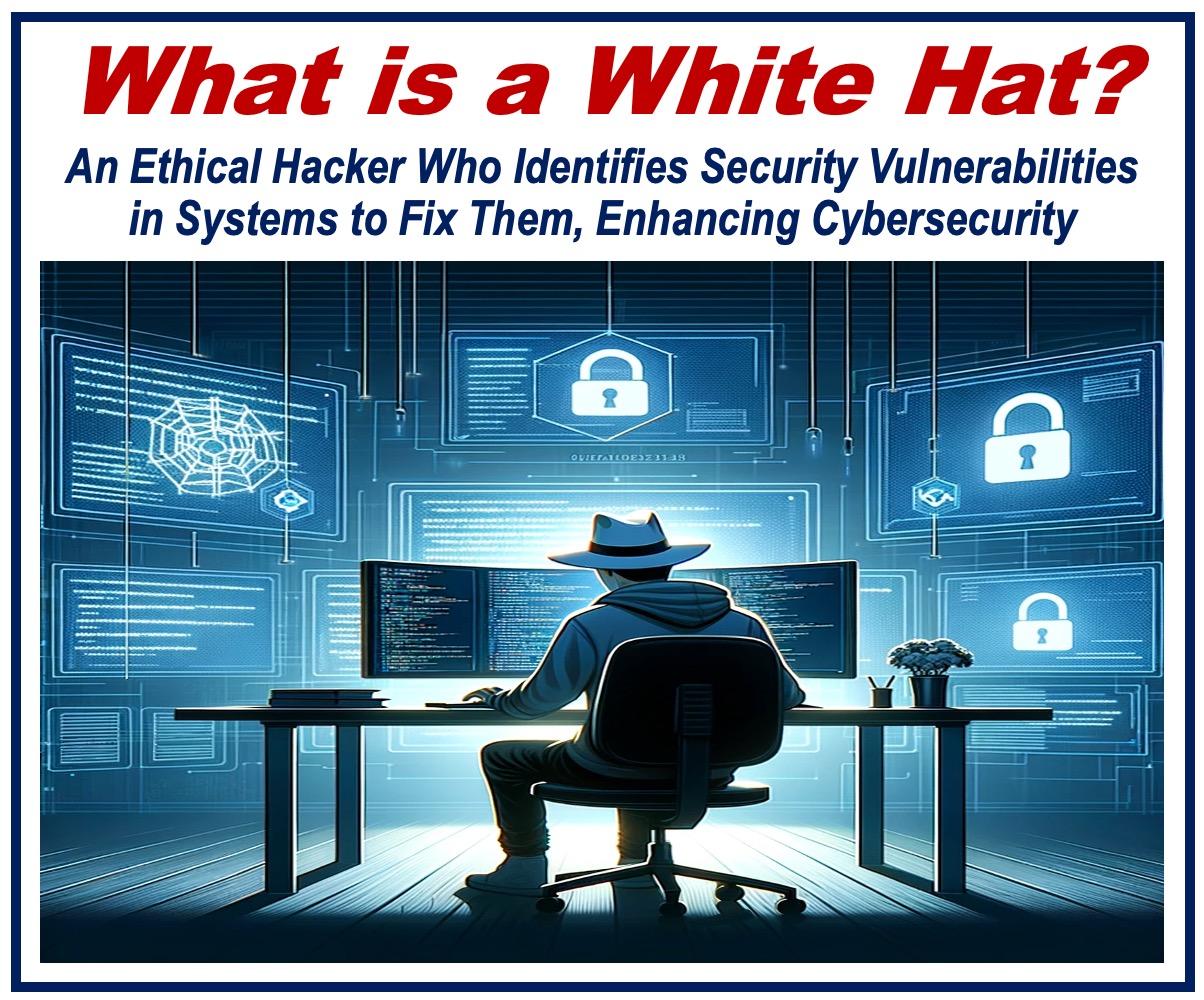What is a White Hat?
In the world of cybersecurity, the term White Hat symbolizes the positive and lawful side of technology, unlike its counterparts, the Black Hats. The white hat hackers work ethically, as opposed to black hackers, whose activities and intentions are nefarious.
Many of the white hats’ skills are used for defensive purposes, otherwise known as ethical hacking. The terms White Hat and Black Hat come from old Western movies where the villains and heroes wore black and white hats, respectively.
“A white hat is an ethical security hacker. Ethical hacking is a term meant to imply a broader category than just penetration testing. Under the owner’s consent, white-hat hackers aim to identify any vulnerabilities or security issues the current system has.”
The Roles of White Hat Hackers
The role of white hat hackers is crucial in the world of cybersecurity for many reasons, such as:
- Finding and fixing vulnerabilities in the security of an application, website, or any other form of web content.
- Carrying out approved attacks to evaluate system security.
- Helping organizations strengthen their cybersecurity.
- Designing and implementing security protocols to prevent future attacks.
- Performing security audits and ensuring compliance with regulations.
- Educating staff on cybersecurity best practices to prevent breaches.
- Responding to security incidents, mitigating damage, and recovering data.
The ideology of white hat practices
White Hat methods are guided by the following fundamental principles:
- Adherence to legal and ethical standards.
- A commitment to improving digital security and user safety.
- Transparency and responsibility in data processing and vulnerability reporting.

White hat SEO
Usually, in Search Engine Optimization (SEO), white hat techniques are employed to improve website ranking while strictly adhering to search engine guidelines. These ethical practices include:
- Creating quality content that prioritizes user needs over search engine rankings.
- Developing organic backlinks rather than resorting to manipulative tactics.
- Ensuring the website is user-friendly and accessible to all.
Challenges faced
Even though white hat hackers have a more ethical approach, there are still challenges to be faced, such as:
- Constantly needing to keep up with rapidly evolving technologies and threats.
- Balancing security measures with user convenience and privacy.
- Trying to secure systems frequently under severe deadlines and resource constraints.
The Future
As technology advances, so will white hat practices, promising a more secure and protected online environment against black hat attacks.
Additionally, we can anticipate an increased focus on creating technologies that are secure by design, embedding cybersecurity measures at the foundational level to preemptively counter threats.
Two Educational Videos
These two videos come from our sister channel on YouTube – Marketing Business Network. Using easy-to-understand vocabulary and examples, they explain what “Cybersecurity” and “Hacker” mean.
-
What is Cybersecurity?
-
What is a Hacker?
Written by Nicolas Perez Diaz

